Breaking
- MENU
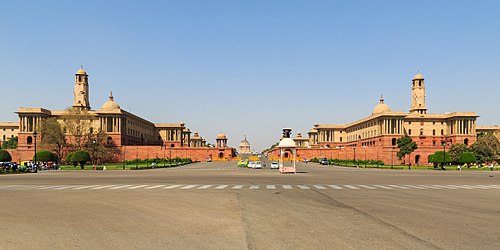
BILATERAL ISSUES
BAHRAIN
Prime Minister condoles the passing away of His Royal Highness Prince Khalifa bin Salman Al Khalifa, Prime Minister of the Kingdom of Bahrain, New Delhi, 12 November 2020.
The Prime Minister, Shri Narendra Modi expressed condolences on the passing away of His Royal Highness Prince Khalifa bin Salman Al Khalifa, Prime Minister of the Kingdom of Bahrain.
"My heartfelt condolences on the sad demise of His Royal Highness Prince Khalifa bin Salman Al Khalifa, Prime Minister of the Kingdom of Bahrain. In this moment of grief, our thoughts and prayers are with HM the King of Bahrain, the royal family and the people of Bahrain", the Prime Minister said. Source: Ministry of External Affairs (MEA).
Visit of External Affairs Minister to Kingdom of Bahrain (November 24-25, 2020), Manama, 25 November 2020.
External Affairs Minister Dr. S. Jaishankar concluded his two-day official visit to the Kingdom of Bahrain today. During the visit, he called on HRH Prince Salman bin Hamad Al Khalifa, the Crown Prince, Deputy Supreme Commander and Prime Minister of the Kingdom of Bahrain and HH Shaikh Ali bin Khalifa Al Khalifa, Deputy Prime Minister of the Kingdom of Bahrain. He held talks with his counterpart H.E. Dr. Abdullatif bin Rashid Al Zayani, Foreign Minister of the Kingdom of Bahrain.
During his calls on the leadership, he personally conveyed, on behalf of the Government and people of India, sincere condolences on the sad demise of HRH Prince Khalifa bin Salman Al Khalifa, former Prime Minister of Kingdom of Bahrain. He recalled the contribution of the late Prime Minister in strengthening India-Bahrain relations and for the welfare of the Indian community in Bahrain.
EAM thanked the leadership of Bahrain for hosting more than 300,000 strong Indian community in Bahrain and for taking exceptional care of the community during the Covid-19 pandemic. Bahrain’s leadership appreciated the contribution of the Indian community to the development of Bahrain and the assistance provided by India during the Covid pandemic through supply of medicines, medical equipment and medical professionals. Both sides affirmed to further strengthen their Covid-related cooperation. They also expressed satisfaction on operationalisation of Air Bubble arrangement between the two countries.
Dr. S. Jaishankar held delegation level talks with Bahrain’s Foreign Minister. The two Ministers discussed the entire gamut of bilateral issues as well as regional and global issues of mutual interest including cooperation and coordination in dealing with post-Covid challenges. They agreed to further strengthen the historic India-Bahrain ties including in areas of defence and maritime security, space technology, trade and investment, infrastructure, IT, FinTech, health, hydrocarbon and renewable energy. EAM renewed invitation to Bahrain’s FM for visiting India for the 3rd India-Bahrain High Joint Commission meeting in the next few months.
During the visit, EAM also interacted with the leaders of the Indian community in Bahrain in virtual mode. He paid a visit to 200 years old Shreenathji (Shree Krishna) temple in Manama. The temple and the Little India around it stand as a testimony for the enduring India-Bahrain friendship. He also visited National Museum of Bahrain. Source: Ministry of External Affairs (MEA).
The Embassy of India organised the Open House, Manama, 27 November 2020
The Embassy of India organised the Open House on 27 November, 2020 between 10:00 hrs to 12:00 hrs, during which Ambassador Piyush Srivastava interacted with the Indian community directly for redressing their urgent/nonroutine consular and labour issues. Due to restrictions in the wake of COVID-19 pandemic, the Embassy has continued to hold the ‘Open House’ in virtual mode.
At the outset Ambassador briefed the community about the very successful visit of Hon’ble Minister of External Affairs, Dr S. Jaishankar to Bahrain from 24-25 November 2020, during which Hon’ble Minister on behalf of the Government of India and people of India, personally conveyed condolences to the leadership and people of Bahrain on the sad demise of former Prime Minister HRH Prince Khalifa bin Salman Al Khalifa. Ambassador also thanked the community members for their active participation in the virtual community interaction held with Hon’ble External Affairs Minister.
Ambassador also briefed them about the general positive developments on urgent common issues being faced by Indian nationals and also listened/redressed specific consular/ labour issues of our community members present at the open house.
The community members were encouraged to make use of the current Amnesty provided by the government of Bahrain till 31.12.2020.
Ambassador encouraged all community members to regularly follow the Embassy’s website and social media accounts for updates regarding pressing common issues such as COVID-19 related SOPs and travel related information.
The issue of delay in appointments which was brought in cognisance during the last open house is successfully resolved and applicants are given appointment within two working days. All other issues which came up during the last Virtual Open House on 30 October 2020 have also been resolved / addressed.
It was a productive interactive session. While some of the grievances/issues being faced by the Indian Community have been resolved, on the other matters requiring documents/details, Embassy will follow up on the same with a view to resolve them at the earliest possible. Source: Embassy of India, Manama.
ISRAEL
Secretary (CPV&OIA)'s remarks at the 13th India-Israel Forum, 23 November 2020.
Thank you for the invitation to the 13th India-Israel Forum. It is an important Track II dialogue, involving various stakeholders. We value greatly the ideas that emerge from this Forum, as expressions of the vibrant democracies we represent. The remarks by the Co-Chairs Jamshyd Godrej and Stanley Bergman have set the tone. My colleague Amb Alon Ushpiz, Director General, Ministry of Foreign Affairs, Israel, who is very familiar with India, has elaborated on the key issues. I wish to reflect on our engagement with the region we call West Asia and Gulf and a few elements of our special and unique relations with Israel.
2. Our relations with the region are civilisational. It is widely believed that over two millennia ago, people from this region reached the southern shores of India on ships led by trade winds. A community of Syrian Jews still exists. Two millennia back, their cousins reached our shores again, a community of Syrian Christians. A few centuries later, from the same region came yet other cousins who brought Islam to India. The synagogues, churches and mosques flourished in our lands, their customs enriched our lives, through the assimilation of cultures and ideologies and exchanges of trade and people. The relations were deep, developing across generations, and were mutually beneficial.
3. Today, we call this region our extended neighbourhood, an indication of cultural affection and policy priority. We saw unprecedented positive momentum in our ties with the countries in this region, in recent decades. We forged several strategic partnerships, including with Israel. The region is central to our economic and security interests and important for our role in a globalized world and reformed multilateralism. Our shared vision hopes for regional peace and stability, economic growth and engagement consistent with development priorities, collaboration in resources and technologies and efforts for a reformed and responsible multilateral system. These form the important pillars of a future-oriented strategic engagement.
4. It is useful to review certain important elements of the relations.
- The trade volume with West Asia and Gulf region is $170 billion, making it a major trading partner. The basket has diversified over time, although hydrocarbons still account for the bulk of trade.
- The cumulative FDI inflow of $7 billion in the past two decades is 2% of our global FDI. But it surged in recent years with sovereign wealth funds and portfolio investments; moreover, Indian corporates are interested in investments in the region.
- The region is vital for our energy security, accounting for 53% of India’s oil and 41% of gas imports, besides stakes in oil blocks, refineries, strategic oil reserves, etc.
- India sources 60% of fertilizers and raw material from this region, and has in turn positioned herself as a reliable source of food exports to the Gulf, making food security an element of this partnership.
- The presence of an Indian diaspora of over 9 million, who sent home around $48 billion in remittances, also makes the region important. Indian workers’ emerged as preferred migrants and there is recognition of their contribution to development of the Gulf States.
5. Admittedly, the region has seen its fair share of conflict. Despite progress and development across the region, economic growth eluded many and religious radicalization and extremism played a role in the spread of violence and terrorism. The growth of non-state actors, sometimes taking advantage of failed states and support from external agencies, complicated the scenario. There is need for reforms to bring moderation in ideology; to revive tolerance and pluralism in society; and to build conditions for peace, development and stability for all. There is closer security coordination and collaboration, between states, to thwart the ambitions of the terrorists. India maintained a principled policy of non-interference and non-partisanship, advised peaceful negotiated settlement and maintained relations with all the countries.
6. We welcomed the recent rapprochement between Arab states and Israel leading to the normalization of relations. This could improve prospects for a brighter future for the region. The ideal future rests on the realization of the legitimate aspirations of the people. We have often said that direct negotiations between the parties can provide solutions for peaceful and secure co-existence between the two sides and also provide peace and prosperity to the citizens of two States, living side by side.
7. India-Israel relations are steeped in history, a chequered one, as we know. The steep trajectory over almost three decades, since we established full diplomatic relations, has been nothing less than extraordinary. The establishment of a strategic partnership in 2017 was not a mere declaration of intent but an enumeration of the true and special character of the relations. Today, we are embarked on exploring newer vistas of cooperation.
8. Let me mention just a few, that have great potential and contemporary relevance: high technology, innovation, water and energy.
- With the unprecedented disruption of Covid pandemic, India and Israel joined hands to develop rapid test kits and cooperated on vaccine research. The scope for high-tech collaboration has grown in defence, under Make in India, and cooperation to combat cyber-crimes has become more important, as we face the threat of terrorists. In an era where technology dominates, India-Israel projects can lead the way, not only bilaterally but in securing new markets globally.
- Israel is known as a start-up nation. Similarly, Start-Up India initiative is building a conducive environment to bring together investors, entrepreneurs and innovators. The iCreate Centre in Gujarat and the $40 million joint I4F (India-Israel Industrial R&D and Technological Innovation Fund) are match-making mechanisms in this area; a lot more can be done.
- Water is a critical resource, the next frontier. Access to water, especially in arid regions posed challenges. Israel’s has been at the forefront of avant-garde research in water conservation and dry land agricultural techniques. This is a strategic sector for bilateral cooperation. Our efforts are aimed at leveraging your pioneering technology in water conservation and desalination to bring water to parched lands of Jamnagar, Chennai and Bundelkhand, to revive traditional indigenous water practices in the region and encourage new agricultural methods based on technology. The India-Israel Agricultural Project and the recent agriculture reforms and laws in India will play a key role in this endeavour.
- Finally, energy. Growth and development demand energy. Contracts for gas exports from the massive Israeli reserves in the eastern Mediterranean, exploring oil and gas in reserves in India, developing technologies and collaborations for renewable energy sources could be the way forward. Becoming partners in climate change adaptation and mitigation efforts will be of immense benefit to our societies.
9. In conclusion, we will leverage the strengths of democracy and pluralism to shape the world and our place in it. With the West Asia and Gulf region, we seek to supplement our strong traditional ties with an "ahead of the curve” approach, which embraces technology and national priorities in a future-oriented action plan that not only strengthens relations but also refashions them and makes them relevant to the changing times. Source: Ministry of External Affairs (MEA).
KUWAIT
Ambassador called on 'His Highness Sheikh Sabah Khaled Al-Hamad Al-Sabah, Prime Minister of the State of Kuwait, Kuwait, 5 November 2020
Ambassador of Republic of India to the State of Kuwait Shri Sibi George called-on His Highness Sheikh Sabah Khaled Al-Hamad Al-Sabah, Prime Minister of the State of Kuwait on 05 November 2020.
Ambassador thanked His Highness, and the leadership of the State of Kuwait for hosting the large Indian Community in Kuwait.
During the meeting, they discussed, inter alia, bilateral relations, means of enhancing and strengthening bilateral cooperation across the entire gamut of the multifaceted relationship and exploring ways to broaden cooperation in newer fields, and matters related to Indian diaspora in Kuwait. Source: Embassy of India, Kuwait.
OMAN
India's Leadership Congratulates Oman on the occasion of 50th National Day, Muscat, 18 November 2020.
The President of India, H.E. Ram Nath Kovind sent a message and conveyed heartiest congratulations to HM Sultan Haitham Bin Tarik, Government and friendly people of Oman on the occasion of 50th National Day of Oman. President Kovind stated India and Oman are maritime neighbors and India attaches very high priority to further develop and expand vibrant strategic partnership between both the countries. President Kovind mentioned that Indian community in Oman is an important pillar of bilateral relationship, whose contribution is also appreciated by Oman.
2. Prime Minister Narendra Modi also wrote a letter to HM Sultan Haitham Bin Tarik and conveyed greetings on the occasion of 50th National Day. Prime Minister Modi recalled his visit to Oman in 2018 and stated India-Oman relations are based on mutual trust, shared values and convergence in approaches. He stated that India will be a trusted partner of Oman in its march towards renewed renaissance under the leadership of His Majesty Sultan Haitham Bin Tarik. Prime Minister Modi also paid rich tribute to Late His Majesty Sultan Qaboos bin Said Al Said and mentioned that he was a beacon of peace and global statesman.
3. India’s External Affairs Minister conveyed his greetings in a tweet and stated “Congratulate FM @badralbusaidi (Badr Al Busaidi) and the Government and people of Oman on their National Day. Greatly value our strategic partnership and our multifaceted relations built on the foundation of strong people-to-people ties”. Source: Embassy of India, Muscat.
UAE
Visit of External Affairs Minister to United Arab Emirates, Abu Dhabi, 26 November 2020.
External Affairs Minister, Dr.S.Jaishankar, paid a two-day official visit to UAE on November 25-26, 2020. During the visit, he called on Crown Prince of Abu Dhabi, HH Sheikh Mohamed bin Zayed Al Nahyan and held talks with his counterpart, the Foreign Minister of UAE, HH Sheikh Abdullah bin Zayed Al Nahyan. He also virtually met the representatives of the Indian community associations in Abu Dhabi.
EAM called on Crown Prince of Abu Dhabi on November 25 and conveyed greetings from the Prime Minister of India, Shri Narendra Modi and his appreciation of the UAE leadership for taking great care of Indians during the Covid-19 pandemic. They also discussed regional and global issues of mutual interest.
EAM and Foreign Minister of UAE held discussions on the entire range of bilateral issues on November 26. EAM briefed the UAE side on the progress made by India in dealing with the Covid-19 pandemic, both on the health and economic front. Both sides reviewed their cooperation on various facets of their comprehensive strategic partnership including trade, investment, infrastructure, energy, food security and defence. EAM and the UAE Foreign Minister discussed recent regional and international developments and agreed to continue coordination on various multilateral issues.
In his virtual meeting with the representatives of the Indian community in Abu Dhabi, EAM appreciated the work of the Indian associations in taking care of the community during the Covid pandemic. He assured them of the Government’s responsiveness on issues pertaining to post-Covid normalcy. Source: Ministry of External Affairs (MEA).
MULTILATERAL ISSUES
OIC
Unwarranted references to India in resolutions adopted by the Organisation of Islamic Conference, New Delhi, 29 November 2020.
We strongly and categorically reject the factually incorrect, gratuitous and unwarranted references to India in resolutions adopted by the Organisation of Islamic Conference (OIC) at the 47th CFM Session in Niamey, Republic of Niger, held on 27-28 November 2020.
We have always maintained that OIC has no locus standi in matters strictly internal to India, including that of Union Territory of Jammu and Kashmir, which is an integral and inalienable part of India.
It is regrettable that OIC continues to allow itself to be used by a certain country, which has an abominable record on religious tolerance, radicalism and persecution of minorities, to indulge in anti-India propaganda. We strongly advise the OIC to refrain from making such references in future. Source: Ministry of External Affairs (MEA).
OPEC
OPEC holds 4th High-Level Meeting of the OPEC-India, Vienna, 05 November 2020.
[Joint Conclusion] The OPEC Secretariat hosted the 4th High-Level Meeting of the OPEC-India Dialogue on 05 November 2020 via videoconference. The Meeting was co-chaired by HE Mohammad Sanusi Barkindo, Secretary General of OPEC and HE the Honourable Dharmendra Pradhan, India’s Minister of Petroleum and Natural Gas and Minister of Steel.
The meeting focused on the implications of COVID-19, discussing the repercussions of the pandemic and its significant impact on both the world economy and energy markets, including oil. Participants also deliberated on medium-term energy and oil prospects and challenges.
The OPEC Secretary General stated that India’s support for the producer-consumer dialogue has greatly contributed to the Organization’s success in pursuing the sustainability of the oil market in recent years, and it continues to do so during the challenging period around the COVID-19 pandemic. Throughout the pandemic, OPEC has been in close interaction not only with producing countries, but also with the major consumers, such as India, HE Barkindo said.
He added that OPEC and the Declaration of Cooperation (DoC) have been addressing the unparalleled impact of COVID-19 and the resulting severe market imbalance through swift and informed actions. The unprecedented decisions by DoC participating countries have received broad support from both major producers and consumers, including at G20 Ministerial meetings.
In terms of the bilateral dialogue, the OPEC Secretary General said: “India is one of the world’s fastest-growing economies and a major driver of global economic and oil demand growth. With India importing around 80% of its oil from OPEC Member Countries, and investment ties increasing with India, these talks are essential to all of us.”
He also praised India for setting a high bar on climate change policies, as was clear from a recent announcement by Indian Prime Minister Narendra Modi on new targets for the country’s energy mix when outlining a new energy map for India.
HE Pradhan began by thanking the Secretary General for his participation in the Honourable Indian Prime Ministers interaction with global oil and gas leaders at the India Energy Forum by CERAWeek at the end of October 2020. He also underlined the importance of the India-OPEC Dialogue as a means to promote mutual understanding on key issues associated with the global oil sector.
The Honourable Minister highlighted that OPEC is critical for India’s energy requirements as it caters to 78% of India’s crude oil demand, 59% of liquefied petroleum gas (LPG) demand, and nearly 38% of its liquefied natural gas (LNG) demand. In terms of value, India imported US$92.8 billion worth of hydrocarbons from OPEC Member Countries during FY 2019-20.
HE Pradhan shared that India’s energy sector has shown remarkable resilience in the face of the COVID-19 pandemic with its energy demand almost returning back to pre-COVID levels, particularly for petroleum products. The consumption of motor spirit (MS) and high-speed diesel (HSD) during the month of October exceeded the figures from 2019. He exhibited confidence that this recovery path in India’s energy demand growth will be sustained in the coming months. He highlighted the need to work together with OPEC to jointly address the current energy challenges and in the post-COVID scenario.
The Honourable Minister also highlighted that this year India has filled strategic petroleum reserves (SPRs) to a capacity of 5.33 MMT under Phase I of its SPR Programme. India will initiate the process of establishing another 6.5 MMT of commercial-cum-strategic petroleum storage at two locations under a PPP model. The Honorable Minister invited OPEC Member Countries to invest in this opportunity.
Both sides drew attention to the close cooperation and engagement in many projects and investments between OPEC Member Countries and India, and other topical issues were addressed, including the Asian Premium and term contracts.
It was noted that much has already been accomplished within the framework of the dialogue, including exchanges of data and technical meetings, and OPEC looks forward to this continuing and deepening in the future. India was invited to join the Charter of Cooperation as a producer and major oil consumer, to benefit from exchanges on pertinent issues affecting the oil market.
Prior to the High-Level Meeting, experts from OPEC and India held their regular technical meeting to discuss matters of common interest and importance in the energy sphere, along with future potential activities.
Both sides reiterated the value of cooperation in many forms, including technical exchange, secondments, as well as joint research activities.
The next High-Level Meeting of the OPEC-India Dialogue will be held in 2021, if possible, in person, in New Delhi. Source: OPEC
As part of the policy, the MEI@ND standardizes spellings and date format to make the text uniformly accessible and stylistically consistent. The views expressed here are those of the author and do not necessarily reflect the views/positions of the MEI@ND. Editor, MEI@ND P R Kumaraswamy
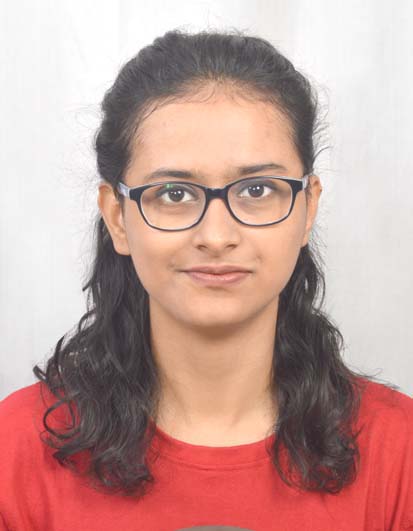
Ankita Sanyal is a doctoral candidate at Centre for West Asian Studies, Jawaharlal Nehru University, New Delhi. She worked as a summer intern at National Human Rights Commission, New Delhi in 2014 and participated in Global Initiative for Academic Networks, lecture on “Jerusalem and Abrahamic Faiths throughout the Ages” (November 2016); ICSSR-sponsored workshop on “Research Methodology Workshop in Social Sciences” (February 2019); and workshop on “Second Intensive Course on Women’s Studies in Islam and Iran” at the University of Religions and Denominations, Qom, Iran (August 2019). She currently has many publications and has presented papers in national and international conferences. She received certificate on completion of Level Two Persian Language course. Her area of interest includes minority studies, gender studies, cultural studies, education, peace and conflict studies.
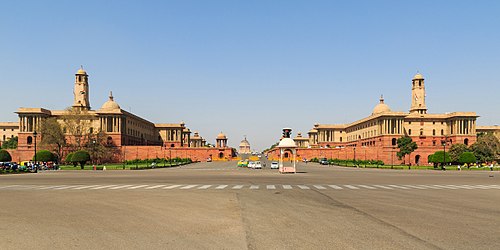
BILATERAL ISSUES BAHRAIN The CEO of LMRA highlights details on the new labour market reforms, .....
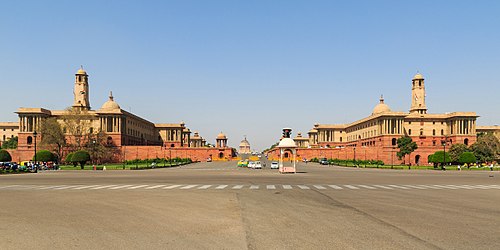
BILATERAL ISSUES EGYPT Raksha Mantri Shri Rajnath Singh to visit Egypt from September 19-20, 2.....
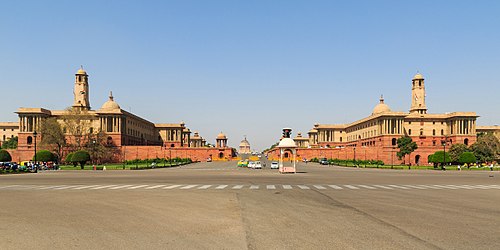
BILATERAL ISSUES IRAN Shri Sarbananda Sonowal visits Chabahar Port in Iran to Review work prog.....
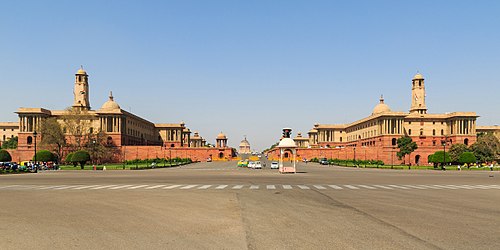
BILATERAL ISSUES BAHRAIN Deputy Chief of Naval Staff, India visits Kingdom of Bahrain, Manama,.....
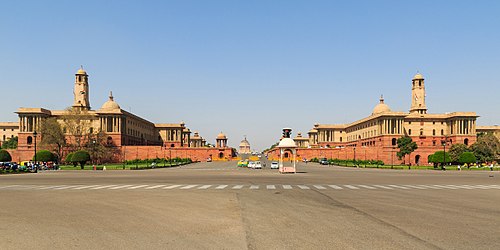
BILATERAL ISSUES BAHRAIN Buyer Seller Meet on Indian coffee between Indian exporters and Bahra.....
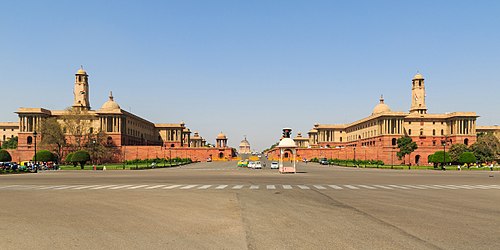
BILATERAL ISSUES BAHRAIN B2B meeting and Networking event between Bahraini & Indian IT com.....
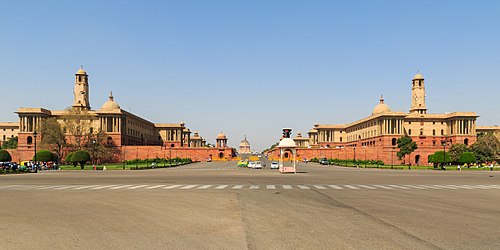
BILATERAL ISSUES OMAN Community Service Fortnight / Sewa Utsav’: ‘Celebration Thro.....
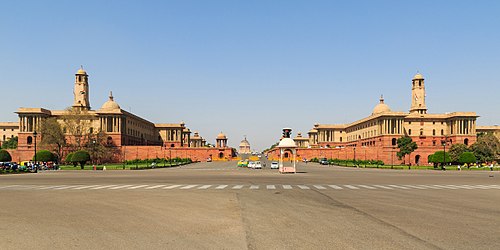
BILATERAL ISSUES BAHRAIN Virtual Buyer Seller Meet on agriculture and food products between In.....
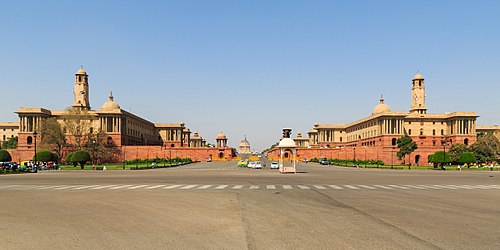
BILATERAL ISSUES BAHRAIN PM speaks on telephone with His Royal Highness Prince Salman bin Hama.....
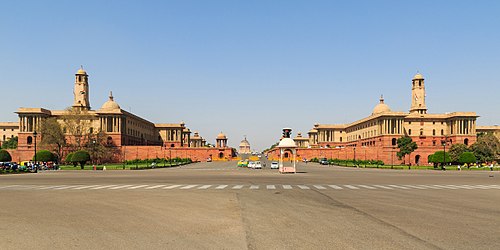
BILATERAL ISSUES ISRAEL Experts from India and Israel suggested expanding scope of India-Israe.....
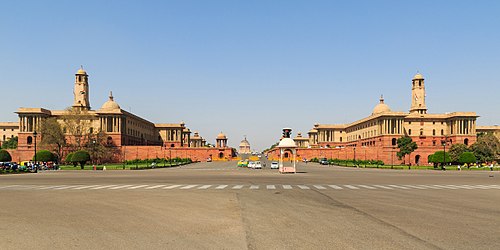
BILATERAL ISSUES BAHRAIN Press Release on virtual meeting between Minister for Education and S.....
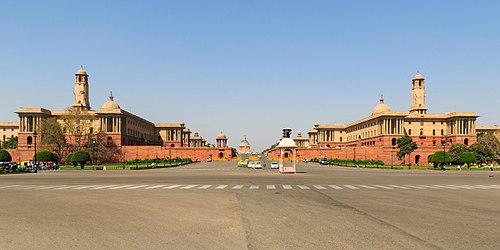
BILATERAL ISSUES BAHRAIN Ambassador’s visit to India Pavilion of Jewellery Arabia, Bahra.....
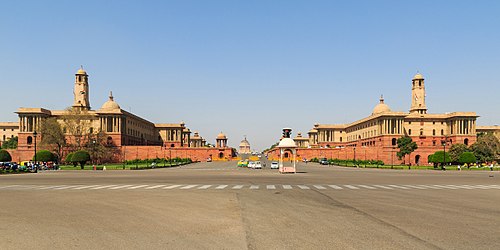
BILATERAL ISSUES BAHRAIN First consignment of GI tagged sweet dish Mihidana from West Bengal e.....
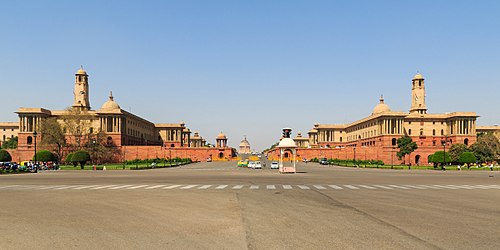
BILATERAL ISSUES ALGERIA Visit of Shri V. Muraleedharan, Minister of State for External Affair.....
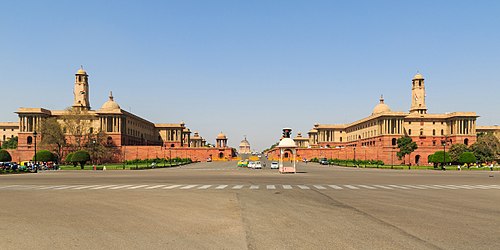
BILATERAL ISSUES ALGERIA INS TABAR undertook a bilateral Passage Exercise (PASSEX) with Algeri.....
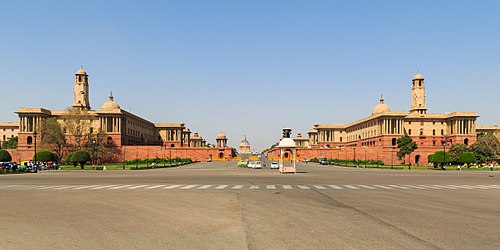
BILATERAL ISSUES BAHRAIN India expands mango export footprint to newer countries; GI certified.....
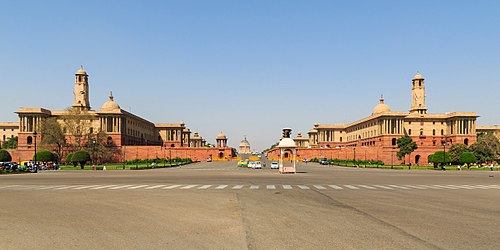
BILATERAL ISSUES ALGERIA APEDA in collaboration with Indian embassy organize virtual buyer sel.....
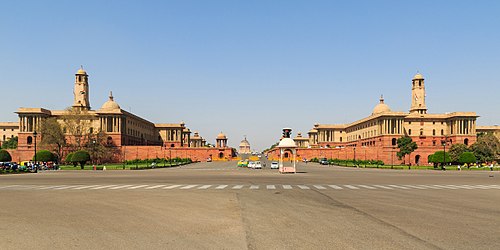
BILATERAL ISSUES EGYPT Procurement of 300,000 doses of Remdesivir from M/s EVA Pharma, Cairo, .....
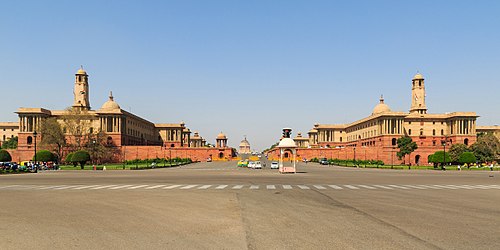
BILATERAL ISSUES BAHRAIN Third India-Bahrain High Joint Commission Meeting, New Delhi, 07 Apri.....
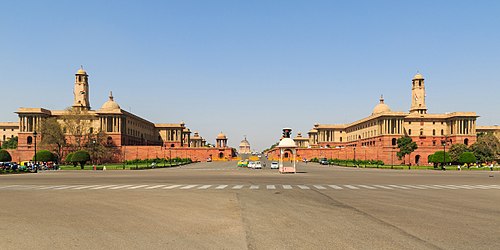
BILATERAL ISSUES BAHRAIN Indian Naval Ship Talwar’s Port Visit to Bahrain, Manama, 18 Ma.....
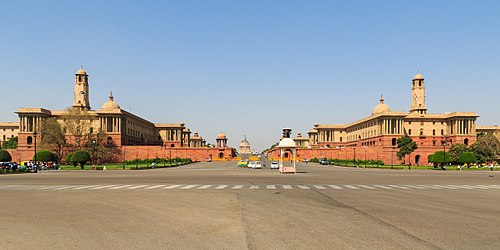
BILATERAL ISSUES IRAN Unstarred Question No.1475, Chabahar-Zaheden Railways Line, Lok Sabha, 1.....
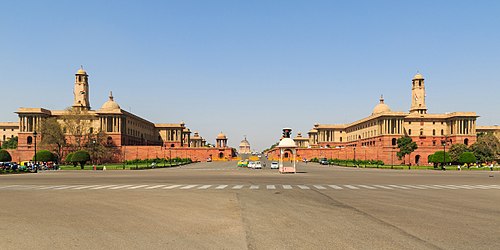
BILATERAL ISSUES IRAN Government of India strengthens cargo handling capacity of Chabahar Port.....
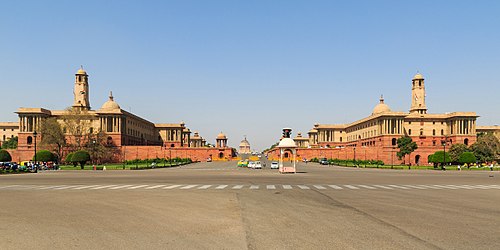
BILATERAL ISSUES BAHRAIN Warm greetings from Indian leadership on the occasion of Bahrain&rsqu.....
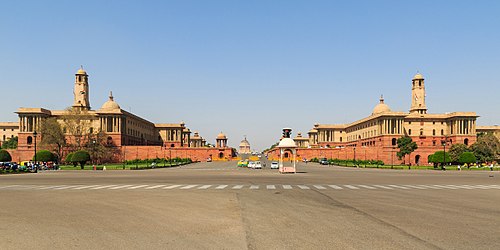
BILATERAL ISSUES BAHRAIN A B2B Webinar on Enhancing Opportunities in Pharmaceuticals and Alter.....
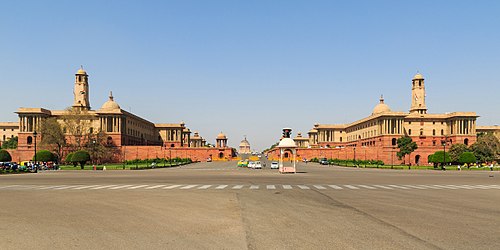
BILATERAL ISSUES IRAN Raksha Mantri Shri Rajnath Singh holds meeting with Iran's Minister .....
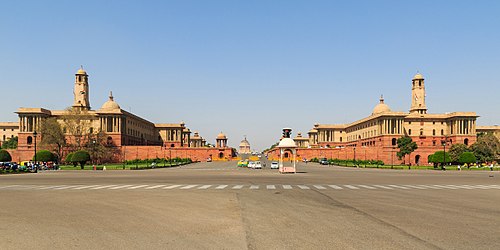
BILATERAL ISSUES ISRAEL Statement by the Official Spokesperson on the full normalisation of re.....
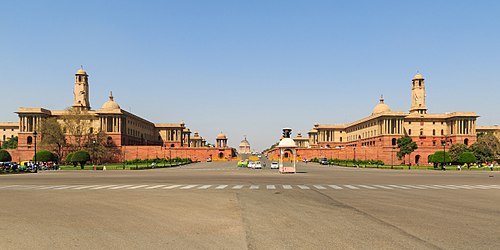
BILATERAL ISSUES ISRAEL Raksha Mantri Shri Rajnath Singh and Israeli Defence Minister telephon.....
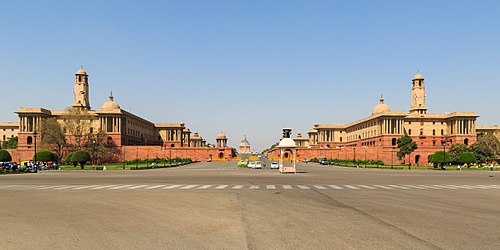
BILATERAL ISSUES IRAN Indian Navy Commences evacuation of citizens from Islamic Republic of Ir.....
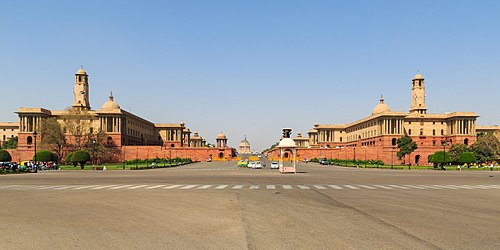
BILATERAL ISSUES EGYPT Phone call between Prime Minister Shri Narendra Modi and His Excellency.....
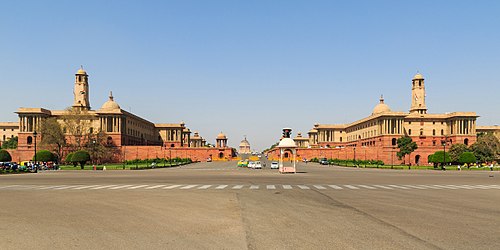
BILATERAL ISSUES BAHRAIN Telephone Conversation between PM and King of the Kingdom of Bahrain,.....
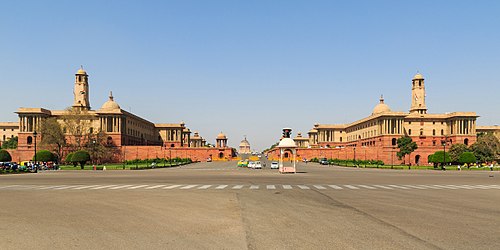
BILATERAL ISSUES IRAN IAF C-17 ‘Globemaster’ takes off for Iran, New Delhi, 9 Marc.....
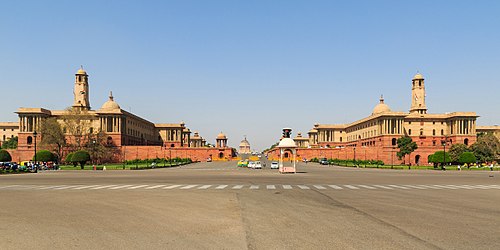
BILATERAL ISSUES IRAQ Travel Advisory for Indian Nationals travelling to Iraq, New Delhi, 19 F.....
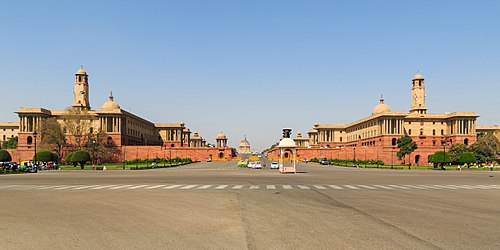
BILATERAL ISSUES EGYPT Photo exhibition on “Making of Indian Constitution and Life of Dr.....
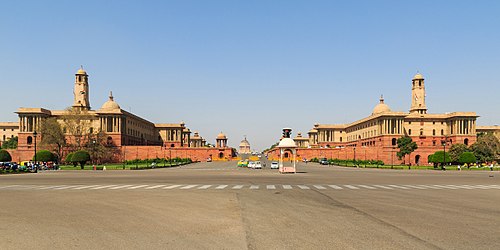
BILATERAL ISSUES EGYPT Prize Distribution Function of “Glimpses of India” Painting.....
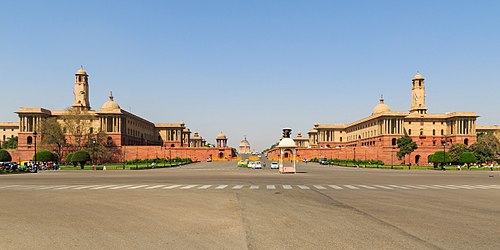
BILATERAL ISSUES EGYPT Consular Camp in Port Said on 22 November 2019, Cairo, 19 November 2019.....
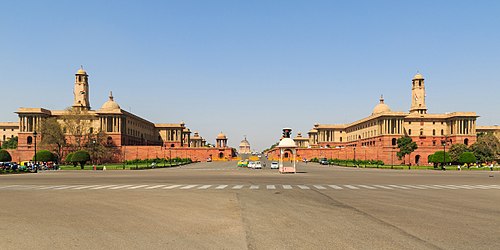
BILATERAL ISSUES JORDAN Meeting between Prime Minister and King of Jordan in Riyadh, Riyadh, 2.....
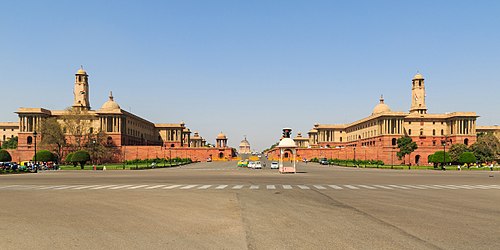
BILATERAL ISSUES a. IRAN Foreign Office Consultations between India and Iran, Tehran, 16 Septe.....
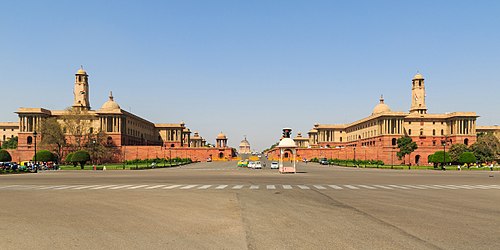
BILATERAL ISSUES a. BAHRAIN State Visits of Prime Minister to Bahrain (August 24-25, 2019), Ne.....
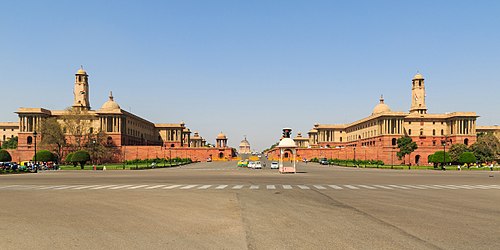
BILATERAL ISSUES BAHRAIN Cabinet approves Memorandum of Understanding between India and B.....
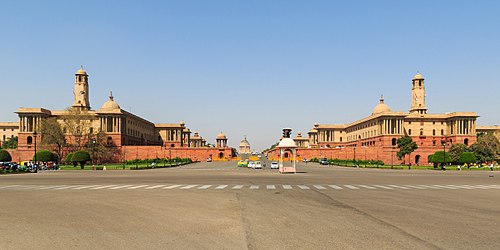
BILATERAL ISSUES IRAN UNSTARRED QUESTION No. 662 MPACT OF AMERICAN BAN ON CHABAHAR PORT, Rajya.....
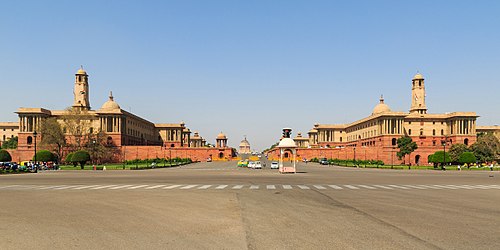
BILATERAL ISSUES IRAN 11th India Iran Joint Consular Committee Meeting (JCCM), New Delhi, 16 M.....
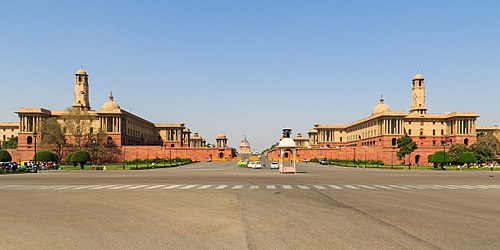
IRAN India extends relief assistance to Iran after recent floods, Tehran, 17 April 2019 In lin.....
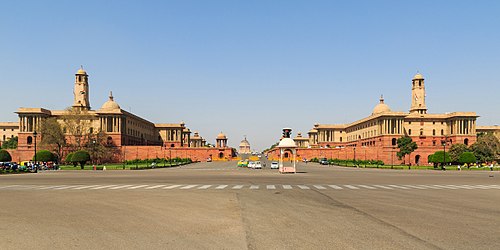
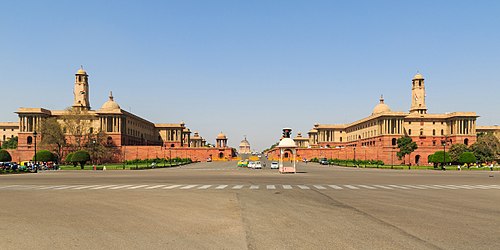
BILATERAL ISSUES EGYPT India condemns terrorist attacks in Egypt, New Delhi, 22 February 2019 .....
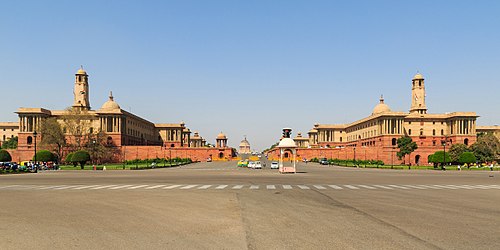
BILATERAL ISSUES ALGERIA Visit of Foreign Minister of Algeria to India (January 30-February 01.....
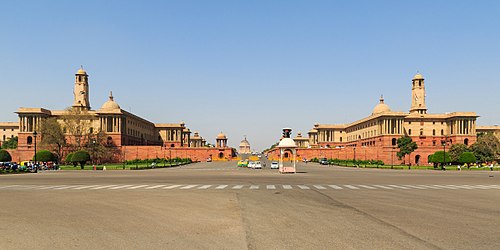
ALGERIA Cabinet approves Agreement between India and Algeria on Cooperation in the field of Space.....
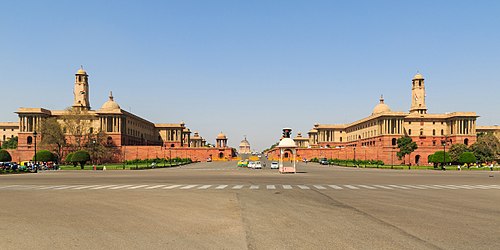
BILATERAL ISSUES IRAQ Jaipur Foot Camp in Karbala, Karbala, 21 November 2018 A 40-day Artif.....
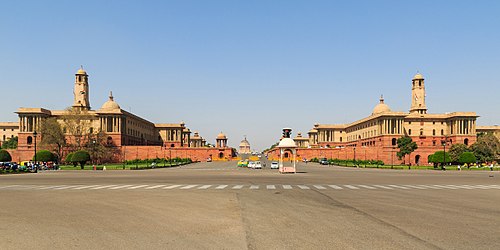
BILATERAL ISSUES KUWAIT Visit of External Affairs Minister to State of Qatar and State of Kuwa.....
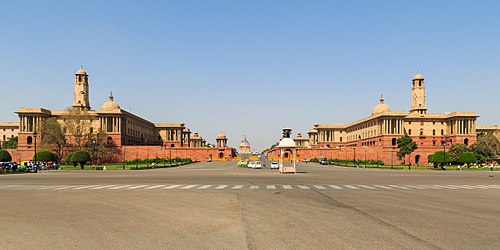
BILATERAL ISSUES EGYPT Cabinet approves MoU between India and Egypt on cooperation in the fiel.....
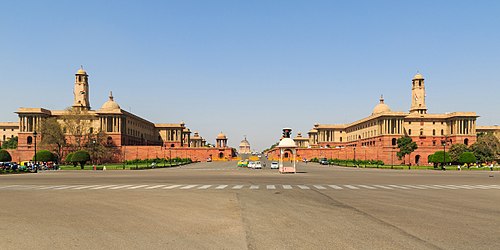
BILATERAL ISSUES BAHRAIN Question No. 3566, Unpaid Workers in Bahrain, Lok Sabha, New Delhi, 0.....
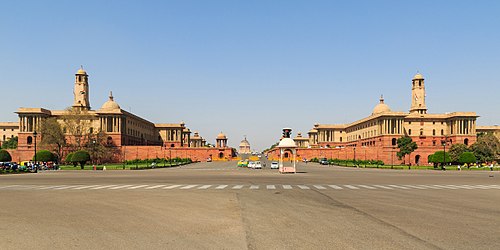
BILATERAL ISSUES BAHRAIN Visit of External Affairs Minister to Manama, Bahrain (July 14-15, 20.....
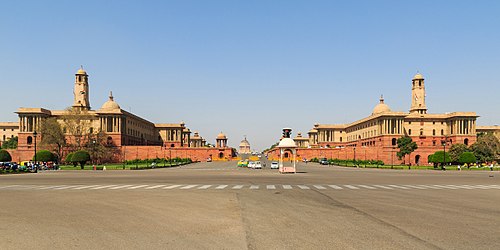
BILATERAL ISSUES BAHRAIN Cabinet approves MoU between India and Bahrain on cooperation in the .....
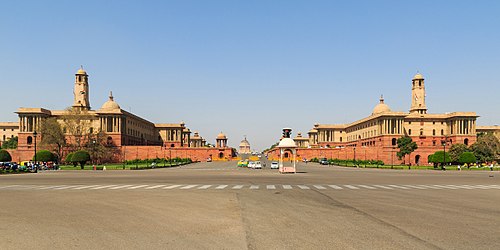
BILATERAL ISSUES IRAN External Affairs Minister’s meeting with Iranian Foreign Minister,.....
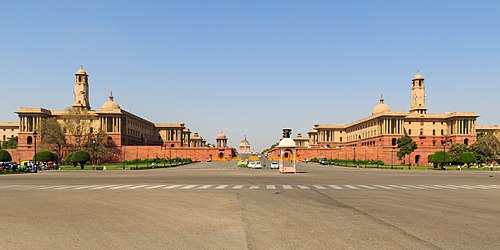
BILATERAL ISSUES IRAN Cabinet approves MoU between India and Iran on the establishment of an e.....
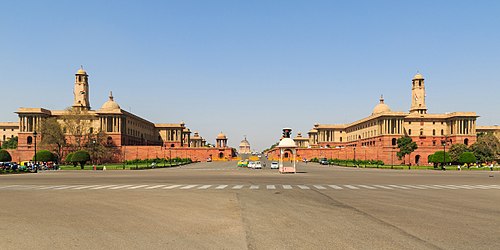
(Monthly Digest of Official Indian Statements on Middle East) BILATERAL ISSUES EGYPT Mr. Sa.....
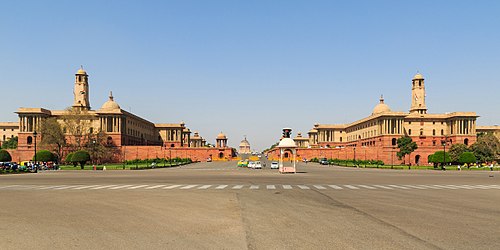
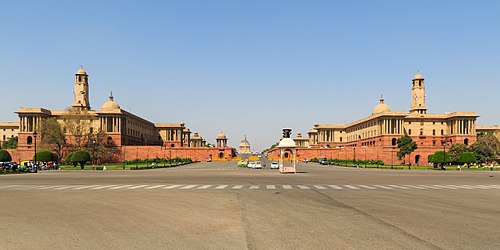
(Monthly Digest of Official Indian Statements on Middle East) BILATERAL ISSUES IRAN Launch .....
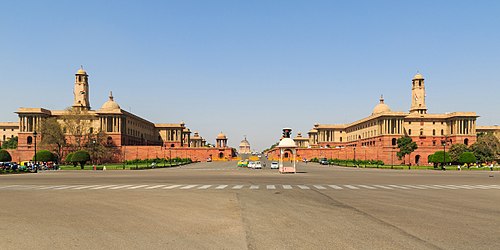
(Monthly Digest of Official Indian Statements on Middle East) BILATERAL ISSUES &.....
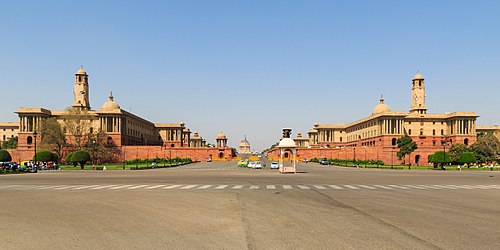
BILATERAL ISSUES a. EGYPT 1. H.E. Col. Rajyavardhan Singh Rathore, Minister of State for Youth.....
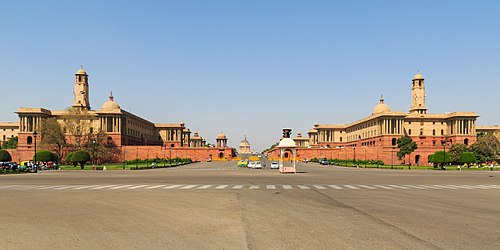
BILATERAL ISSUES a. IRAQ 1. India’s position on the Referendum held in the Kurdistan Reg.....
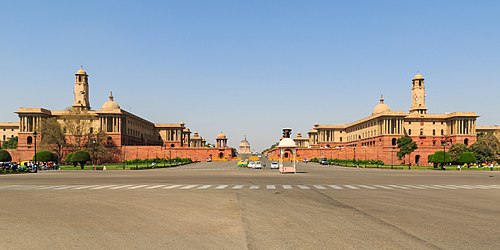
BILATERAL ISSUES IRAN 1. 6th Meeting of Joint Committee on Ports and Maritime Cooperation.....
